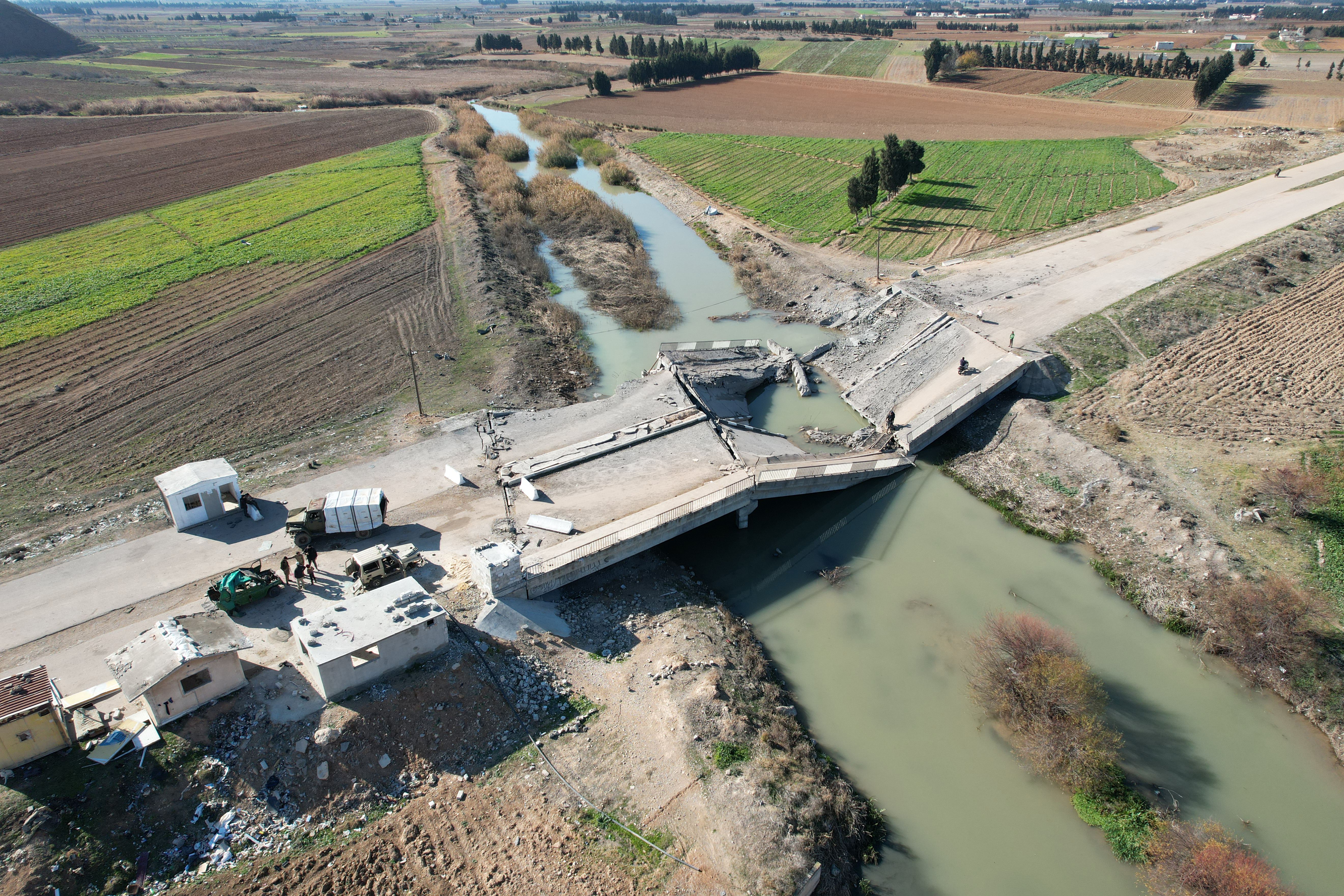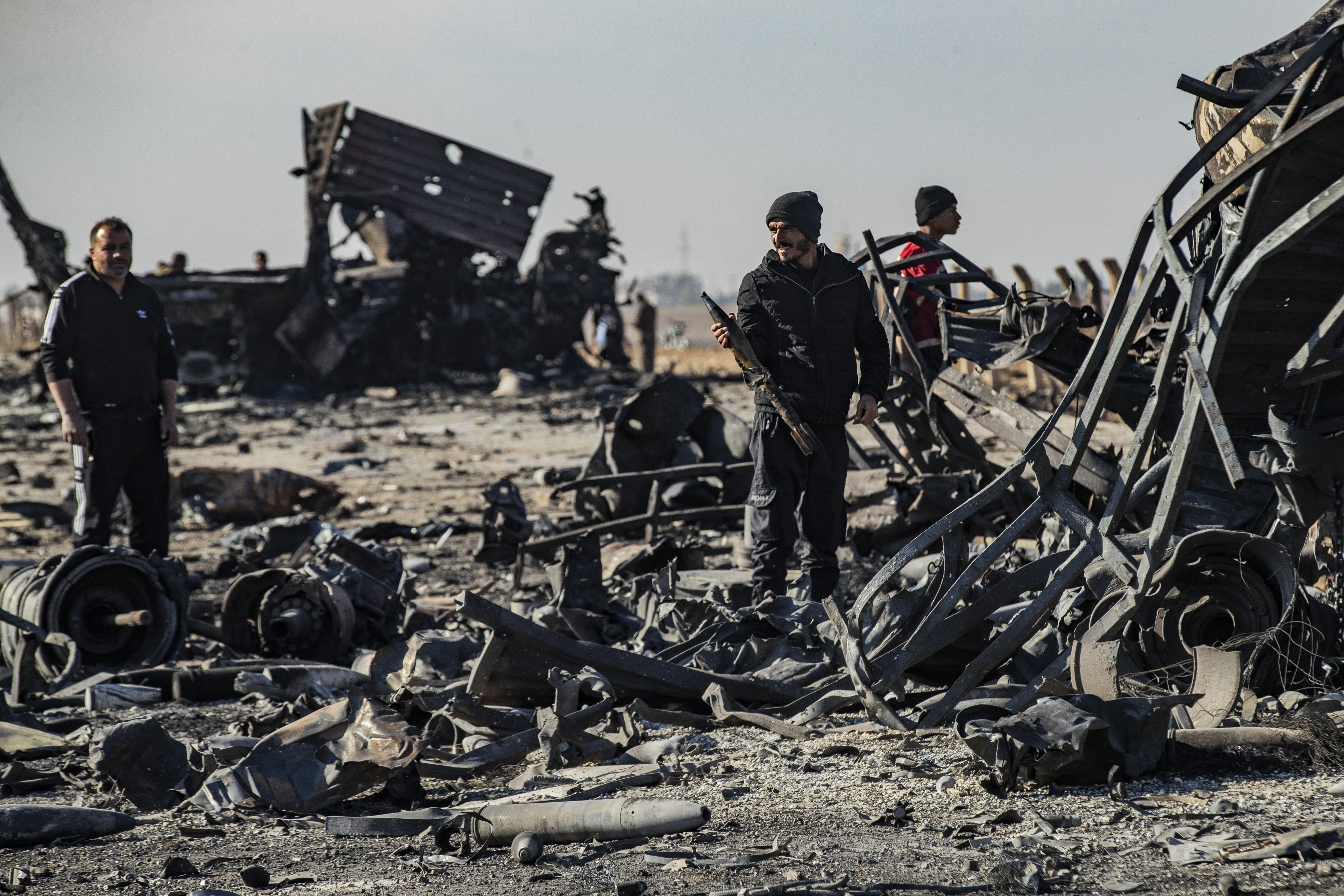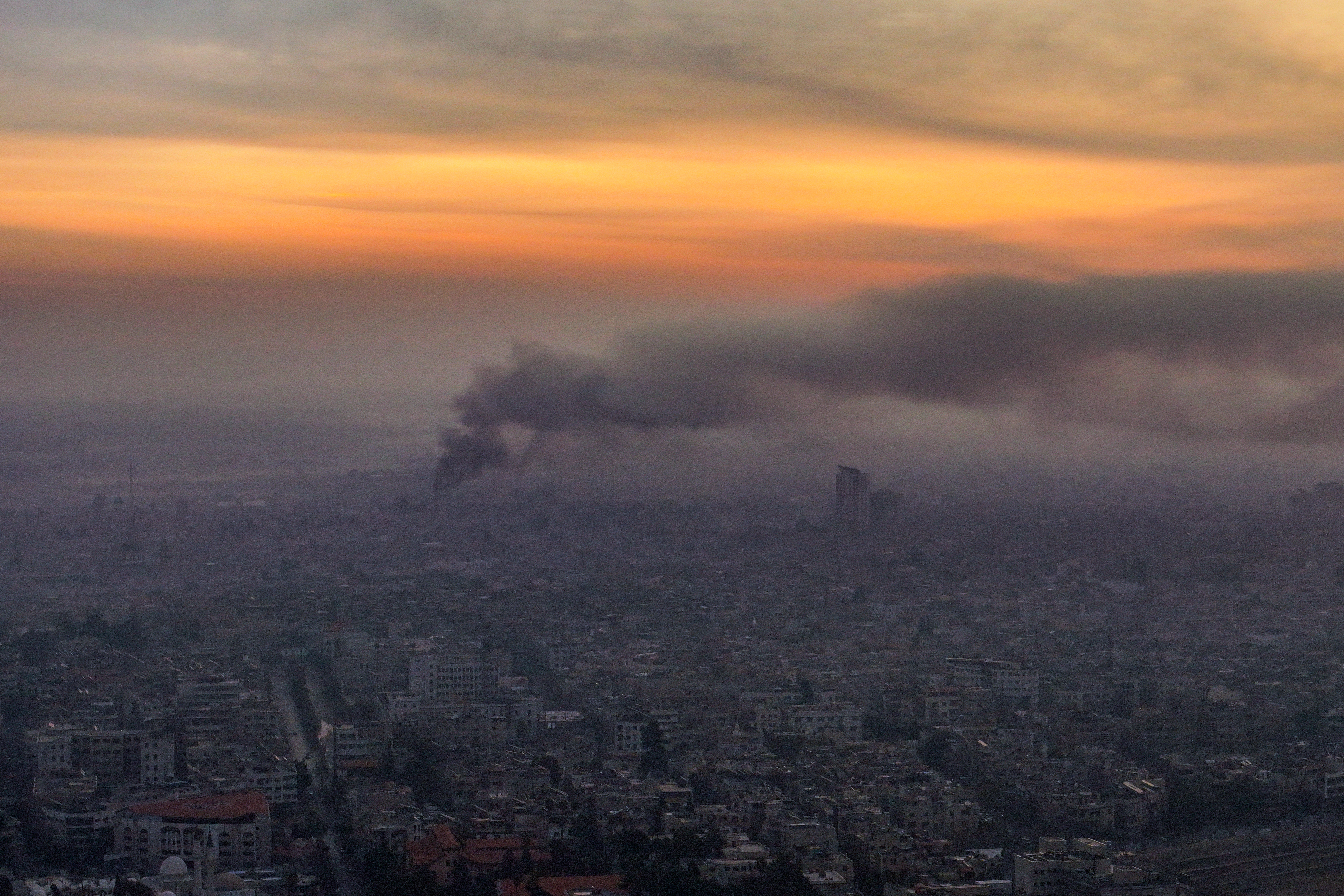
DAMASCUS / BEIRUT / CAIRO – Israel intensified its airstrikes against Syria's military facilities on Saturday as the Syrian rebel leader who led the military operation that resulted in the collapse of Bashar al-Assad's government stressed that diplomatic solutions are the only path to ensuring security and stability.
The Israeli strikes, including 24 air raids in the countryside of Damascus, reportedly hit tunnel-equipped installations carved into a mountainside in the targeted area, as reported by the Syrian Observatory for Human Rights.
The latest raids bring the total number of Israeli airstrikes on Syrian territory to 426 since the collapse of the Syrian government on Dec 8. These operations have spanned 13 Syrian provinces, according to the observatory.
Israeli airstrikes have been targeting Syrian military assets across the country, according to Israeli officials, who claimed the attacks aimed to prevent the weapons "from falling into the hands of terrorist elements."
ALSO READ: International community condemns Israel's military actions against Syria
Also on Saturday, Ahmad al-Shara, leader of the Hayat Tahrir al-Sham, acknowledged the enormous scale of destruction in the Syrian capital Damascus and beyond after the downfall of Bashar al-Assad's government.
In an interview with Syria TV, al-Shara said Syria now stands at a critical juncture, requiring careful data-driven strategies and the establishment of a rule-of-law state to ensure lasting stability.
Al-Shara, who led the military operation that resulted in the collapse of al-Assad's government, emphasized the need to govern with a state-oriented mindset. He called for building institutions based on law and justice.
"We must pivot to the tasks of state-building," he said, stressing that the country's future depends on inclusive governance and a professional, accountable bureaucracy.

Al-Shara vowed to end Syria's role as a hub for illicit activities, including the production of Captagon.
The new administration, he said, is determined to restore the rule of law and ensure that the country's wealth benefits its citizens.
He vowed to rebuild and improve Syrians' living conditions, restore essential services, and strive for a more stable and just future.
He called for caution and diplomacy, urging all parties, including global powers, to act responsibly and avoid sparking new conflicts.
ALSO READ: UN: Over 1.1 million Syrians homeless since recent escalation of hostilities
Al-Shara accused Israel of using weak justifications for its recent strikes inside Syria, cautioning that continued Israeli overreach could provoke unnecessary escalation. He called on the international community to intervene diplomatically to preserve regional peace.
"We are not currently seeking to engage in a conflict with Israel," he said in the interview.
Meanwhile, Hezbollah leader Naim Qassem confirmed on Saturday that the Lebanese armed group has temporarily lost its weapons supply route through Syria following the recent fall of Assad's government.
In his first televised address since the collapse of Assad's government, Qassem acknowledged the disruption, describing it as a "detail" in the broader scope of Hezbollah's operations. He added that the supply route could be restored once a new regime is in place, or Hezbollah may seek alternative pathways.

In Cairo, Egyptian President Abdel-Fattah al-Sisi and US National Security Advisor Jake Sullivan discussed here Saturday the latest developments in Gaza and Syria, the Egyptian presidency said in a statement.
Al-Sisi underscored the importance of preserving Syria's unity, territorial integrity, and the security of its people.
Sullivan, who is on a regional tour, visited Israel on Wednesday with Syria on top of the agenda, according to the US administration spokesperson.


